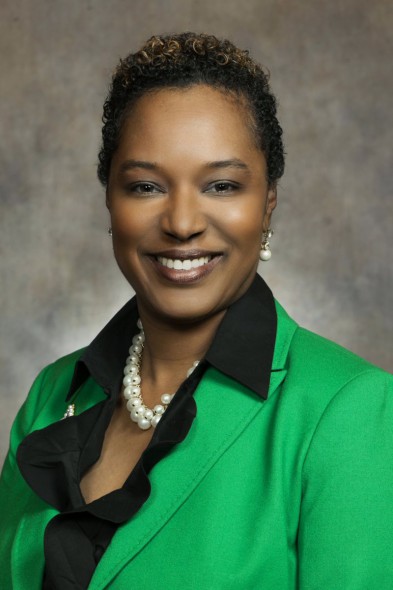Legislators Push Child Support, Custody Changes
Legislative Study Committee proposes 11 bills to change how judges handle divorce, paternity issues.
A bipartisan group of legislators crafted a package of changes that would rewrite rules governing the emotional issues of child custody and child support payments when parents split up.
Last year, court records show, Wisconsin judges handled 17,544 divorce cases and ruled on 10,096 paternity cases.
Eleven bills were recommended by the Legislative Council Study Committee on Child Placement and Support made up of legislators, researchers and advocates. Republican Rep. Rob Brooks, of Saukville, committee chair, worked closely with committee vice-chair Democratic Sen. Lena Taylor, of Milwaukee, on the emotional issues.
In a WisconsinEye interview, Taylor said the changes could have a “huge” impact on a system where many parents cannot afford to hire attorneys.
Often, parents “who are not married are trying to decide” child custody and support, Taylor added.
Brooks said fathers and mothers told him they left courtrooms where child custody and support had been ordered “feeling disenfranchised by the system. They just felt lost.”
Brooks listed the five most important changes proposed:
*AB 94: Stay child-support payments for a parent in jail or prison for more than 180 days. Taylor said this was one of her priorities, because a parent who is incarcerated can’t pay child support. Inmates now “dig a [financial] hole the whole time they are in custody,” Taylor said. When released, they are buried under past child-support debts as they try to restart their lives.
Under the bill, they would have a “clean slate” in terms of not owing child support for their time in jail or prison, Taylor said.
*AB 98: Reasons must be stipulated when a parent is awarded less than 25 percent of custody and 16 factors stipulating why placement may not be best are reordered. Brooks said he heard from many parents who didn’t know why they weren’t awarded 25 percent or 50 percent of custody, so the bill would require a judge to list those reasons.
“The biggest complaint we heard was, ‘Why didn’t I get joint custody? Why didn’t I get equal placement’?” Brooks said. Brooks said he may offer an amendment raising – to 50 percent – the standard for when reasons for that custody order must be given.
*AB 99: Require parents to submit their “proposed parenting plan” 10 days before required mediation.
Parenting plans are important because “if I do a plan, and the other parent does a plan, we might actually find out we agree,” Taylor said.
Other states have learned that mediation “was way more successful” if parenting plans are submitted in advance,” Brooks added. “It takes a lot of burden off the courts.”
*AB 100: Judges may consider CCAP records of domestic violence, crimes against child and injunctions. Judges are now “prohibited” from considering those court records when making custody decisions, although some do that research anyway, Brooks said. But judges need “the most information” they can get.
When the safety of a child is being decided, Taylor said, judges should be told, “This is something you should take a look at.”
*AB 103: Requiring more fathers who can pay birth costs to pay them.
Brooks said it was “crazy” when he learned how rarely fathers pay birth costs because of a rule that said they can be waived if the family unit was “intact” – a vague them that cannot be uniformly enforced
“If I have a child with somebody, I should pay birth costs,” Brooks said.
Paternity rulings are important in the City of Milwaukee, where 68 percent of all 2016 births were to unmarried mothers, according to the Annie E. Casey Foundation.
But Tarrier said End Domestic Abuse also opposes this bill. “Birth cost recovery is not helpful for mothers who are victims of domestic violence as it tends to reignite dangerous dynamics between them and their abusers without providing any additional resources for parenting,” Terrier said.
“Particularly in cases in which the father is already involved in parenting or financially supporting the child,” Terrier added, “recovering the cost of the birth is unhelpful and potentially dangerous.”
Steven Walters is a senior producer for the nonprofit public affairs channel WisconsinEye. Contact him at stevenscotwalters@gmail.com
The State of Politics
-
RNC Brings Fame to Gen Z Party Leader
 Jul 15th, 2024 by Steven Walters
Jul 15th, 2024 by Steven Walters
-
Wisconsin’s Republican Roots Run Deep
 Jul 8th, 2024 by Steven Walters
Jul 8th, 2024 by Steven Walters
-
Feuding Supreme Court Justices Need a Break
 Jul 1st, 2024 by Steven Walters
Jul 1st, 2024 by Steven Walters






















